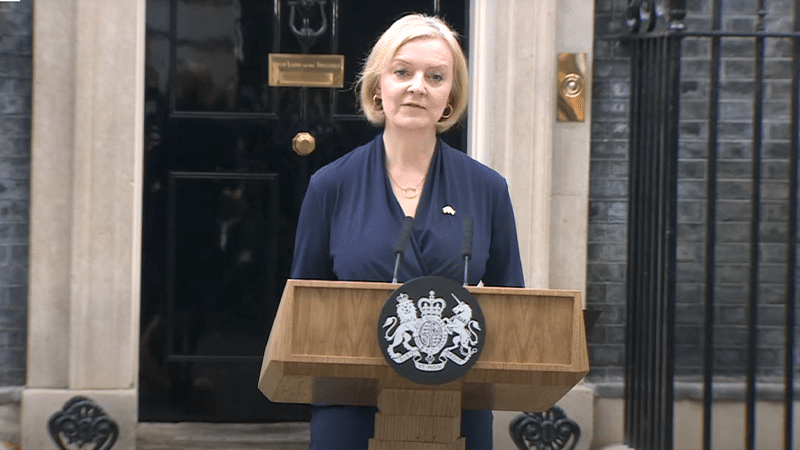Liz Truss’s resignation and what it may mean for freedom of speech

Liz Truss’s time in Downing Street has been extremely short-lived. No other Prime Minister has spent less time at No. 10. Her tenure saw major U-turns on economic policies, the sacking of the Chancellor and the resignation of the Home Secretary.
Her economic policies, ‘Trussonomics’, drew the headlines but she also spoke in favour of protecting and promoting free speech. It is important that whoever replaces her follows through on these commitments.
The Bible commands us to pray “for kings and all those in authority, that we may live peaceful and quiet lives in all godliness and holiness. This is good, and pleases God our Saviour, who wants all men to be saved and to come to a knowledge of the truth.” (1 Timothy 2:2-4)
A leadership election is expected to be completed within a week and Institute Director Colin Hart has asked supporters to pray that the current political turmoil will not be exploited by those seeking to bring in bad laws.
Bill of Rights
In one of her first acts as Prime Minister, Truss shelved the controversial plans to replace the Human Rights Act 1998 with a new Bill of Rights. She reportedly told her Cabinet there were better ways to reform human rights.
The proposals could have made landmark judgments that The Christian Institute was involved in, such as Ashers Baking Company and the Scottish Government’s Named Person scheme, harder to achieve in the future. Specific religious liberty protections successfully campaigned for by The Christian Institute also risked being watered down.
The Bill had not been expected to return in its current form, but a new Prime Minister could change tack and choose to press ahead in making it law.
Online Safety Bill
This similarly applies to the Online Safety Bill.
Prior to being elected by the Conservative membership, Truss was questioned about the implications of the Bill. She said she wanted to protect under-18s, but also believed adults’ free speech “should be the same online as offline”, and promised she would “make sure the Online Safety Bill does reflect that”.
The Bill has a laudable aim of forcing social media companies to ensure under-18s do not view harmful content, including introducing robust age verification systems to stop young people viewing online pornography. The Bill would also make cyberflashing a criminal offence, with perpetrators facing up to two years in prison. The legislation includes measures designed to protect people from being abused online by anonymous trolls.
However, it also gives tech giants strong incentives to restrict content which is legal, but deemed ‘harmful’ to adults. This could include harassment and the promotion of self-harm or eating disorders, but the definition could go much further. They could be fined up to ten per cent of their annual global turnover if they fail to do so and senior executives could face fines or jail time if they do not comply with investigations conducted by the designated regulator, Ofcom.
The Bill’s approach has led to understandable fears that social media companies – which are no strangers to restricting Christian and socially conservative content – will go far beyond what the law sets out, particularly given that the free speech duties contained in the Bill are weak. There is a serious danger that conservative, traditional views on marriage, sexual ethics and gender will be increasingly seen as valid targets for censorship by ‘Big Tech’.
Ensuring that what is legal to say on the street remains legal to say online must continue to be a priority, no matter who is the next Prime Minister.
